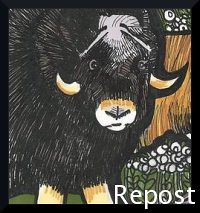 I wrote this on nearly the same day last year, and since I've been reading some Asimov lately, thought I would repost. The dates have been changed for relevance.
I wrote this on nearly the same day last year, and since I've been reading some Asimov lately, thought I would repost. The dates have been changed for relevance.
On January 2, 2008, Isaac Asimov would have been 88 years old. Simultaneously, on the second, I turned 29 (edited).
Asimov died of AIDS from a tainted blood transfusion in 1983, a little known fact, even among his fans. It wasn't publicized until his wife, Dr. Janet Jeppson wrote a bit about it in the epilogue of Asimov's memoir It's Been a Good Life, published in 2002. Why wasn't it addressed until then? The following letter explains (following a poorly researched article in Locus magazine):
Dear Locus,
I hope no one will believe that, according to the article in Locus, Isaac Asimov "wanted to reveal he had AIDS but was talked out of it at the time by his second wife, Janet Jeppson." A few years after Isaac's bypass surgery, he had some symptoms that made me read the medical journals---and then I wanted him tested for HIV. The internist and cardiologist said I was wrong. Testing was done only when he was seriously ill and in the hospital for surgery on his by then infected heart valves. The surgery was cancelled, and the doctors told us not to reveal Isaac's HIV. I argued with the doctors privately about this secrecy, but they prevailed, even after Isaac died. The doctors are dead now, and when Prometheus books asked me to write "It's Been a Good Life", Isaac's daughter and I agreed to go public on the HIV.
Janet Asimov
Asimov had many more years ahead of him and an incredible capacity for literary proliferation. The new, fast paced movement of biology in the past decade or so would have been a new challenge for him, and his recorded leanings toward environmentalism through sound science would have surely thrown him into the political arena. A arrogant Asimov facing off against the new agers and the hard right would truly be You Tube-worthy.
But instead, we are left with the task, it seems. It's repeatedly stated that young minds are better applied to new tasks; fresh perspectives, clean slates and flexible cognition.
I don't entirely believe that statement. I see a lot of young minds focusing on one facet of one sub-category of one topic of one field, even when working on their BS (I'm not just talking about science majors, but they are the most extreme in this sense). This is necessary, especially in the biological fields, but it is also incredibly limiting.
Why is it accepted that in order to be creative, one must be good in arts and literature. but terrible in science and math? Why is it laughably okay to be a great scientist or mathematician, but a terrible writer or art aficionado? These are the things we joke about in college: Who's bad at what and why, but that doesn't make it okay.
People have the capacity for engaging both sides of their persona's. We are all imaginative and creative, but possess a system of reason as well. Both sides need to be developed - schooled - if they are to become useful. The successful artist does not wake up one day, pick up the paint brush for the very first time and create a lasting expression of the human experience, just as the shrewd scientist does not waltz into a lab for the first time and craft ingenious experiments to expose the mysteries of the natural universe.
These fields complement each other when one possesses adequate knowledge of both. We lack generalists in a day and age where the information in infinitely available to us all without excuse.
Asimov warned against the overspecialization of science (especially in the short story, Sucker Bait), with good reason; it was the physical manifestation of all that he was not. The man wrote on everything in his life, from the Bible to astrophysics to Shakespeare and beyond. He was the epitomical generalist, and as such, one of the most prolific writers ever to live.
"So what?" or "There are still generalists out there" are fair responses. I'm speaking in general. But I have a feeling that the more versatile your store of information and experience in the mind, the greater the number of connections and correlations can be made, and all stories - fiction and non - are a series of these connections and correlations, touching another's mind for a time and explaining a portion of the world.
Scientists have no excuse for a lack of knowledge of art, writing and literature. Artists and writers have no excuse for a lack of knowledge of contemporary scientific pursuits. Good science is done with touches of artistic, creative elegance, just as good art and writing is done with precision and accuracy, structure and organization.
I feel that Asimov wrote with these notions in mind, and I respect and appreciate him deeply for it. A birthday between us may be a coincidental trifle, but it reminds me of my place and pursuits.
thanks
Happy Birthday!
Isaac Asimov was a friend of mine. He published a pun-filled work of mine in an anthology he edited. I brought him on the NBC-TV Today Show as my guest. I miss him terribly. I also have enjoyed every meeting or phonecall I've had with Dr. Janet Jeppson Asimov, except the last phonecall, where she burst into tears, from the nearly final bad news from the hospital.
Isaac Asimov was one of a kind. There is nobody who can replace him. I agree that the world needs him now more than ever.